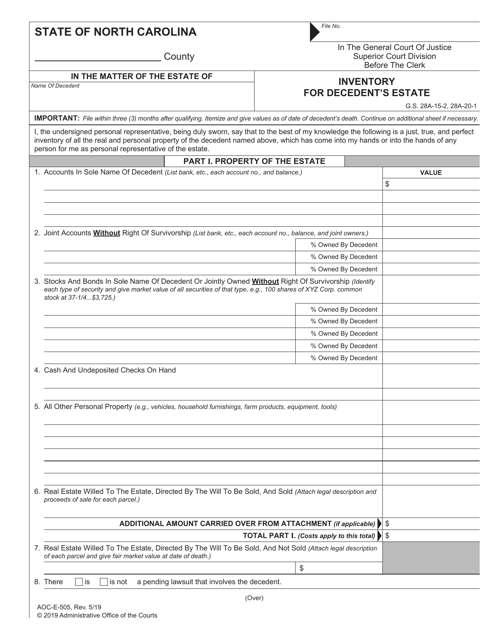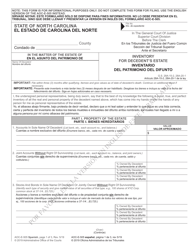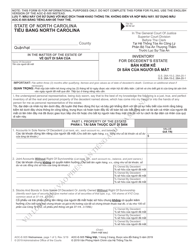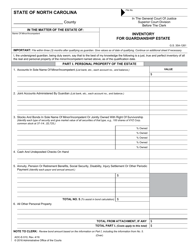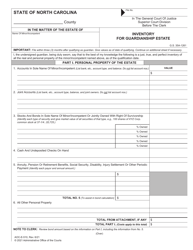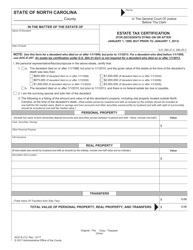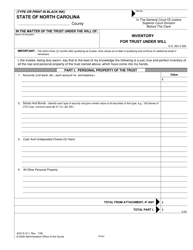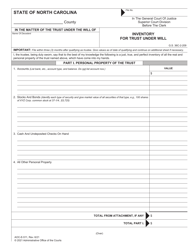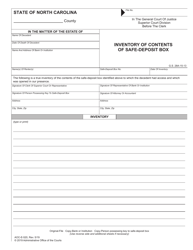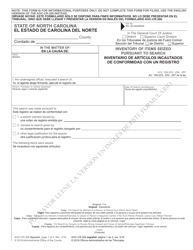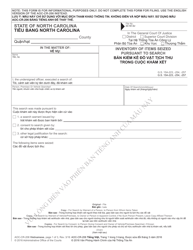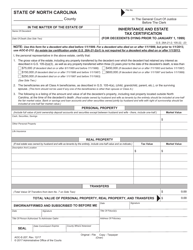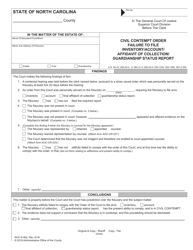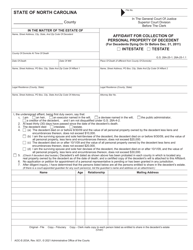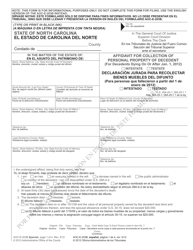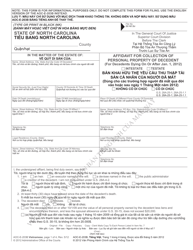This version of the form is not currently in use and is provided for reference only. Download this version of
Form AOC-E-505
for the current year.
Form AOC-E-505 Inventory for Decedent's Estate - North Carolina
What Is Form AOC-E-505?
This is a legal form that was released by the North Carolina Superior Court - a government authority operating within North Carolina. As of today, no separate filing guidelines for the form are provided by the issuing department.
FAQ
Q: What is Form AOC-E-505?
A: Form AOC-E-505 is an Inventory for Decedent's Estate in North Carolina.
Q: When is Form AOC-E-505 used?
A: Form AOC-E-505 is used to itemize the assets and liabilities of a decedent's estate in North Carolina.
Q: Who needs to fill out Form AOC-E-505?
A: The personal representative or executor of the decedent's estate needs to fill out Form AOC-E-505.
Q: What information is required on Form AOC-E-505?
A: Form AOC-E-505 requires information about the decedent's assets, such as real estate, bank accounts, investments, and personal property, as well as liabilities and debts.
Q: Are there any filing fees for Form AOC-E-505?
A: There may be filing fees associated with Form AOC-E-505, which vary depending on the county in North Carolina. It's best to check with your local county clerk's office for specific fee information.
Q: Is Form AOC-E-505 the final step in estate administration?
A: No, Form AOC-E-505 is part of the initial steps in estate administration. There may be additional forms and procedures required to complete the administration of the decedent's estate.
Q: Can I get help with filling out Form AOC-E-505?
A: Yes, you can consult with an attorney or seek guidance from a probate court clerk to help you with filling out Form AOC-E-505.
Q: What should I do after filling out Form AOC-E-505?
A: After filling out Form AOC-E-505, you should file it with the probate court and provide copies to interested parties, such as beneficiaries and creditors of the estate.
Form Details:
- Released on May 1, 2019;
- The latest edition provided by the North Carolina Superior Court;
- Easy to use and ready to print;
- Available in Spanish;
- Quick to customize;
- Compatible with most PDF-viewing applications;
- Fill out the form in our online filing application.
Download a fillable version of Form AOC-E-505 by clicking the link below or browse more documents and templates provided by the North Carolina Superior Court.
